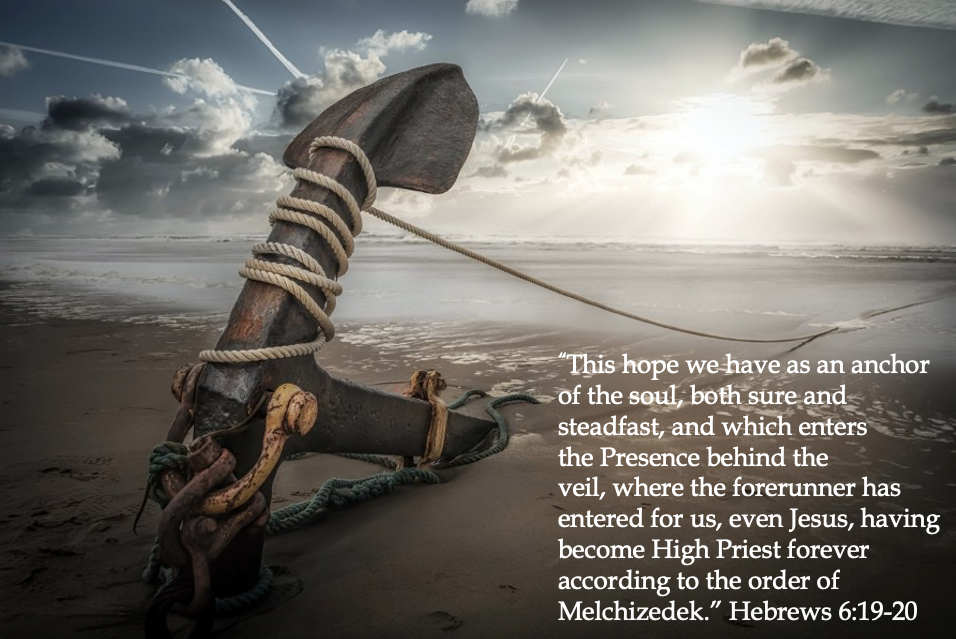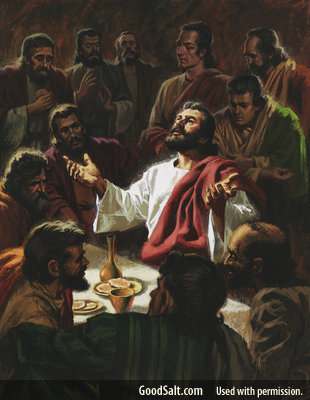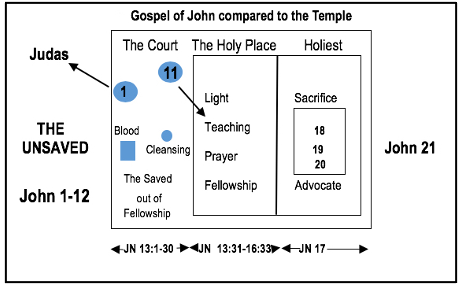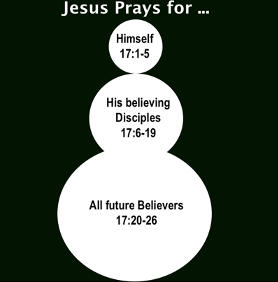“19 This hope we have as an anchor of the soul, both sure and steadfast, and which enters the Presence behind the veil, 20 where the Forerunner has entered for us, even Jesus, having become High Priest forever according to the order of Melchizedek.” Hebrews 6:19-20
An anchor was a popular image in the ancient Mediterranean world. Because that economy depended on shipping, the anchor came to symbolize safety and steadiness. The writer of Hebrews used the word to remind believers that God has given us a hope that holds firm in any storm.
Hope is a healthy attitude. In the book of Hebrews, “hope” (elpidos, 3:6; 6:11, 18-19; 7:19; 10:23; 11:1) is the confident expectation of God fulfilling His promises. 1 Anticipating good from God brings comfort to the mind and heart. In contrast, a state of hopelessness is a terrible condition in which to find oneself. It is overwhelming and depressing to think that what you are facing cannot be changed or resolved. For the person who has lost all hope, life looks like a long, dark tunnel going nowhere.
The author of Hebrews was writing to Christians who were facing hardship and persecution because of their Christian faith. Some were tempted to abandon Christ and return to Judaism because they had lost hope. He is urging them to persevere by returning to the hope that they have in Jesus Christ to inherit the promise of ruling with Him.
He uses a metaphor used only here in the Bible (6:19) of an “anchor” (ankyran). But instead of going down into the ocean, this anchor goes up into the heavens, behind the veil, where Jesus has entered as a Forerunner for us. He has become our High Priest forever, according to the order of Melchizedek. The main reason a ship needs an anchor is to ride out storms so that it is not blown off course or into the rocks or reefs nearby. Even in a safe harbor, a ship needs an anchor so that it will not drift, hit something, and sink. Whether in the storms of life or in the harbor during the calm times of life, we all need an anchor for our souls so that our lives are not destroyed.
The writer of Hebrews wants his readers to be “diligent” or hard working to the end of their Christian lives (6:11) so they won’t be sluggish (6:12) like he said they were earlier (5:11). Remaining diligent to the end of their lives will enable them to “inherit the promises” of God, especially the reward of ruling with Christ as His companions (Heb. 1:4-5, 8-9, 13-14; 3:1, 14; cf. Psalm 2:7-8; Matthew 19:28-29; Luke 22:28-30; Rom. 8:16-17; 2 Tim. 2:12; Rev. 2:25-27; 3:21). How can we remain faithful to Christ so we can inherit the promise of ruling with Him?
First, we must rely on the promises of God which cannot fail (Heb. 6:13-15). This is what Abraham did during the storms in his life. Abraham’s life is the story of God initiating and promising, with Abraham responding in faith. God appeared to Abraham while he was still named Abram, living in Ur of the Chaldees. He commanded Abram to leave his relatives and that city and go to a place that God would show him (Gen. 12:1-3; cf. Acts 7:2-3). Abram’s obedience was not easy. In that day, you didn’t just pack up a moving truck and head out on the highway, keeping in touch with the folks back home through frequent emails and phone calls. To move hundreds of miles away meant permanent separation from family and friends. There were unknown hardships to be encountered. Would the people of the new land be hostile or friendly? Could you provide adequately for your family there? What about learning the new language? There weren’t real estate offices to help you get resettled into a new home. Where would you live?
But Abram obeyed (Gen. 12:4).God had promised to multiply Abram, making him the father of a great nation (Gen. 12:2; cf. 13:15-16; 15:5). His name, Abram, meant, “exalted father,” but his wife Sarah was barren. They were getting up in years but had no children despite God’s promise. Can you imagine the encounters he had as he and Sarah moved into Canaan? This seventy-five-year-old man says, “Hello, my name is Abram [exalted father].” The Canaanite responds, “Nice to meet you. How many children do you have?” “None yet.”
But then God added insult to injury. When Abram was ninety-nine years old, the Lord appeared to him, reaffirmed His promise to multiply him exceedingly (Gen. 17:2-4), and then changed his name to “Abraham,” meaning “father of a multitude” (Gen. 17:5)! He has been waiting for twenty-four years since God first promised to give him a son. He still has no children, except for Ishmael through Hagar. But now he tells everyone that God has given him a new name, “father of a multitude”! It would be like a bald man named Harry, and God says, “Let’s change your name to Bushy-haired Harry”!
Years after God blessed Abraham with his promised son, Isaac, he was then told by God to sacrifice Isaac. “Then He said, ‘Take now your son, your only son Isaac, whom you love, and go to the land of Moriah, and offer him there as a burnt offering on one of the mountains of which I shall tell you.’” (Gen. 22:2). Can you imagine how difficult this must have been for Abraham? He had waited twenty-five years for Isaac to be born. And now God wants him to kill his only son on the altar of sacrifice?!
But Abraham obeyed. Why? The Bible tells us: “17 By faith Abraham, when he was tested, offered up Isaac, and he who had received the promises offered up his only begotten son, 18 of whom it was said, ‘In Isaac your seed shall be called,’ 19 concluding that God was able to raise him up, even from the dead, from which he also received him in a figurative sense.” (Heb. 11:17-19). Abraham was still trusting God to fulfill His former promise regarding his descendants by expecting Him to raise Isaac from the dead. Now we are ready for Hebrews 6:13-15.
“13 For when God made a promise to Abraham, because He could swear by no one greater, He swore by Himself, 14 saying, ‘Surely blessing I will bless you, and multiplying I will multiply you.’ 15 And so, after he had patiently endured, he obtained the promise.” (Heb. 6:13-15). The phrase “God swore by Himself” signifies that He binds His word to His character. The “promise”to which the writer referred here was the one God gave Abraham after he had obeyed God by offering up Isaac.
In 6:14 when the writer of Hebrews quoted from Genesis 22, the Lord is referring to the messianic aspects of God’s promise. “16 By Myself I have sworn, says the Lord, because you have done this thing, and have not withheld your son, your only son— 17 blessing I will bless you, and multiplying I will multiply your descendants as the stars of the heaven and as the sand which is on the seashore; and your descendants shall possess the gate of their enemies. 18 In your seed all the nations of the earth shall be blessed, because you have obeyed My voice” (Gen. 22:16-18). Just as Abraham’s obedience would reap future blessings in the Messiah’s kingdom, so too, Christians who persevere in obedience to Christ would also reap blessings in His coming kingdom – especially the reward of ruling with Jesus (cf. 2 Tim. 2:12; Rev. 2:25-27; 3:21).
The writer was calling his readers to do what God called Abraham to do when He instructed him to sacrifice Isaac on Mt. Moriah. They too needed to continue to trust and obey, as they had done in the past, even though circumstances appeared as if their perseverance would result in tragedy. 2 The lesson for us is there has never been anyone who trusted in God’s promises and was finally disappointed. God may delay the visible answers to His promises because He always answers in His time, not in ours. We may not see the answer until we are in heaven. But He is utterly trustworthy to keep His Word. If He has promised eternal rewards to the one who perseveres to the end, you can count on it as absolutely true!
The second way to remain faithful to Christ is to rest in the Person of God Who cannot lie (6:16-18a). The author now focuses on “the oath” that God made to Abraham. “For men indeed swear by the greater, and an oath for confirmation is for them an end of all dispute.” (Heb. 6:16). When a person wants to end an argument, one way to do so is to appeal to a higher authority with an oath. For example, some people do this by saying, “I am telling the truth so help me God.” Even God used “an oath” to guarantee His promise to bless Abraham greatly (Gen. 22:16).
“God swore on Himself by Himself and ended any further discussion with His legal affirmation. His promises are as true as He is. Those who believe Him and endure will receive the rewards of His faithfulness.” 3
“17 Thus God, determining to show more abundantly to the heirs of promise the immutability of His counsel, confirmed it by an oath, 18 that by two immutable things, in which it is impossible for God to lie.” (Heb. 6:17-18a). This messianic hope was not only certain for Abraham, but also for the Christian “heirs” who remained faithful to the end. So, the promise and the oath are the “two immutable [or unchanging] things” since “it is impossible for God to lie.”If God lied, He would deny His very nature as the God of truth, Whose very word is truth (Isa. 65:16; John 14:6; 17:17). If God has said that we will rule with Christ if we remain faithful to Him (2 Tim. 2:12; Rev. 2:25-27), then it is true, and we dare not question Him!
We are all prone to bend the truth when it suits our purposes. But God is not like us. It is impossible for God to lie. He has never lied in all of eternity. When we doubt His promises, and especially His promise of ruling with Christ, we are in effect calling Him a liar! Our hope of reigning with Christ if we remain faithful is certain because God’s Person is incapable of lying. God’s doubly strong promise to Abraham, then, can be a “great (doubly strong) consolation” to us, now, because God has also promised us future blessings. Specifically, He has promised that we will receive the reward of ruling with Christ if we remain faithful to Him until the end of our Christian lives (cf. 2 Tim. 2:12; Rev. 2:25-27).
The third way to remain faithful to Christ is to run to our hope which is anchored in the priesthood of Jesus Christ (6:18b-20). The figure that closes verse 18 is an Old Testament one. “…We might have strong consolation, who have fled for refuge to lay hold of the hope set before us.” (Heb. 6:18b). When we are tempted to give up on God during trials, we can “flee for refuge” to the promises of God. We can “lay hold of” them, just as a fearful person in Israel could flee to the altar of burnt offerings, take hold of its horns, and be safe from his assailants (cf. I Kings 1:49-51; 2:28-39). The cities of refuge also provided safety for the Israelites (Num. 35:9-15; Joshua 20). But we have a much better “refuge” than the Israelites did in Judaism. Our refuge is anchored in the Priesthood of Christ. The “We… who have fled for refuge” implies not every Christian takes refuge in the Lord. We have already seen that this is true (Hebrews 6:1–9). Some Christians produce thorns and thistles for the Lord – they turn their backs on Him with hardened hearts.
In 6:19-20 the writer uses another type of figure to illustrate our hope in Christ. He uses the idea of an anchor which is securely dropped in the harbor. “19 This hope we have as an anchor of the soul, both sure and steadfast, and which enters the Presence behind the veil, 20 where the forerunner has entered for us, even Jesus, having become High Priest forever according to the order of Melchizedek.” (Heb. 6:19-20). In the first century, sailors would carry their ship’s anchor in a smaller boat called a “forerunner” and deposit it on the shore, so that the ship would not drift away as waves beat against it.
“The Greek word for forerunner was used in the second century A.D. of the smaller boats sent into the harbor by larger ships unable to enter due to the buffeting of the weather. These smaller boats carried the anchor through the breakers inside the harbor and dropped it there, securing the larger ship. Forerunner presupposes that others will follow. Thus, Jesus is not only the believer’s anchor, but He is like a runner boat that has taken our anchor into port and secured it there.
There is thus no doubt as to whether this vessel is going into port. The only question is whether it will go in with the sleekness of a well-trimmed sailing vessel or like a water-laden barge. Believers who have such a hope in the presence of God should come boldly before the throne of grace (see 4:14-16).” 4
But instead of going down into the ocean, God’s anchor goes up into the heavens, behind the veil, where Jesus has entered as a Forerunner for us to firmly plant this anchor of hope in heaven for our storm-tossed souls. It should keep us from drifting away from God (cf. 2:1). Our anchor rests firmly in the Holy of Holies (“behind the veil”), in God’s presence in heaven, with Jesus. The “veil” was that thick curtain that separated the holy of holies from the rest of the Jewish tabernacle or the temple. The veil was what separated the place of worship from the inner room where God dwelt with His people.
“In the context of Hebrews this hope (elpis) is the blood of Christ. In contrast to the Levitical sacrifices, the author declares in 7:19, ‘there is the bringing in of a better hope, through which we draw near to God.’ It is Christ’s blood (not animal blood) that has entered the Presence behind the veil, that is, into the heavenly tabernacle and the very presence of God (cf. 9:11-12). The ones entitled to strong consolation are those who continue holding fast to this hope. Indeed, it is an anchor of the soul that only the priest according to the order of Melchizedek can provide. Those who turn away from this and retreat back to some form of Judaism will find no consolation there.” 5
What Hebrews 6:19-20 is saying is we have a hope, anchored in the blood of Jesus Christ. And because of Jesus, we as Christians can come before God at any time. We can because of the high priestly ministry of Jesus, which He is doing right now, on our behalf. We can know the high priestly ministry of Jesus right now in our lives. How? He has torn the divider between us and God as our Father. The veil was torn when Jesus died for us (Matt. 27:51; Mark 15:38; Luke 23:45). We can now enter the holy of holies; we can unite with the Lord and know His compassion and His care. We can grow in our relationship with Him to the point where we know what makes His heart beat faster with joy or what causes Him to be sad or angry. We can know He is using us to do ministry. In all of this, we can know we are walking side by side with Him as His companions—where we know at our core, we are partnering with Him as His companions. 6
The main reason we need an anchor is to keep us from drifting into things that would destroy us, especially during storms. Abraham had his storms as he waited on God. In two different moments of weakness, he thought that powerful men would take his wife from him, which would have nullified God’s promise of a son through her. And so, he lied that she was his sister. At another moment of despair, he went into Sarah’s maid, Hagar, and conceived Ishmael. But despite these failures, he continued to trust God Who would fulfill His promise.
We can face many different types of storms that threaten to rob us of hope in Christ. There are storms of deceit in which false teachings try to blow us off course (Eph. 4:14-15). These teachings may say all Christians will receive the same rewards by their position in Christ so there is no need to persevere to the end. Or they may deny that there are rewards in heaven. We must resist these lies by holding firmly to the promise of ruling with Christ as His companions (Heb. 1:8-13; 2 Tim. 2:12).
There will be storms of doubt, when we question Christ’s future victory over His enemies and our ruling with Him in His glorious Kingdom on earth. We can weather them by coming back to the truth of His promise to bless obedience (Heb. 10:35).
There will be storms of difficulties, where we wonder why God is allowing them and question whether He loves us. We weather them by remembering that God, Who did not spare His own Son, but delivered Him over for us all, will now freely give us all things we need to live a life of faith for Him (Rom. 8:32)! If God did not spare His only Son when we were His enemies, how much more will He give us now that we are His beloved children so we can reign with Christ in the future?!
There may be storms of defeat, where we fall into sin and dishonor our Lord and Savior. We can weather even these storms if we realize that our High Priest is praying for us, that our faith may not fail, and that by His grace, we can be restored and encourage others to hold fast to Christ (Luke 22:32).
Where is your anchor? Where is your hope and security? For some people, it is in the temporary things of this earth. Such things as your appearance, achievements, approval, or affluence all of which can change. The writer of Hebrews invites us to move our anchor to heaven in the Person of Jesus Christ. You can do that by believing in Jesus Who shed His blood on a cross for all your sins and rose from the dead so you may have everlasting life and a future home in heaven (John 3:14-15; 14:1-3; Rev. 21-22). Then you can go directly into God’s heavenly throne room any time through prayer to receive whatever is needed for you to remain faithful to Christ and inherit His promise of ruling with Him as His companions in the world to come (Heb. 1:2-13; 3:1, 14; 4:14-16).
Prayer: Father God, we praise You for Your unchanging promises to which we can flee for refuge when we face storm-tossed times. Thank You for the everlasting hope we have in the Lord Jesus Christ Who entered the Presence behind the veil in the heavenly tabernacle as our Forerunner to firmly plant this anchor of hope in heaven for our storm-tossed souls. Our eventual arrival in the port of heaven is guaranteed by this anchor which was deposited there. Having such a hope in Your presence, Father, invites us to come boldly to the throne of grace at any time to receive the grace and mercy we need to remain faithful to Jesus until the end of our lives on earth. Then we may inherit Christ’s promise of ruling with Him as His companions in His coming Kingdom on earth. In Jesus’ mighty name we pray. Amen.
ENDNOTES:
1. Tony Evans, CSB Bibles by Holman, The Tony Evans Bible Commentary (B & H Publishing Group, Kindle Edition, 2019), pg. 2835.
2. Tom Constable, Dr. Constable’s Notes on Hebrews, 2015 Edition, pg. 70.
3. Rick Oglesby, Among the King’s Companions: Position Yourself Today to Be Among Those Who Rule With Christ (Rick Oglesby, 2018 Kindle Edition), pg. 72.
4. The NKJV Study Bible formerly titled The Nelson Study Bible New King James Version, Edited by Earl D. Radmacher, Ronald B. Allen, H. Wayne House (Nashville: Thomas Nelson Publishers, 2007), pg. 1955.
5. J. Paul Tanner, Robert Wilkin; J. Bond; Gary Derickson; Brad Doskocil; Zane Hodges; Dwight Hunt; Shawn Leach; The Grace New Testament Commentary: Revised Edition (Grace Evangelical Society, Kindle Edition, 2019), pp. 520-521.
6. Oglesby, Among the King’s Companions, pp. 81-82.







